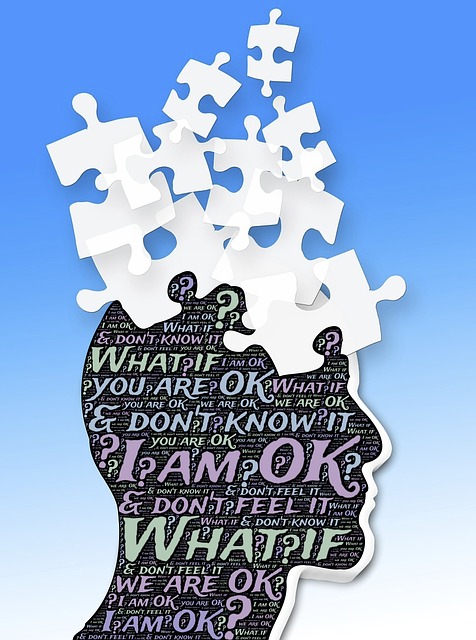Why is it So Hard to Be Assertive? 5 Skills You Can Learn

Why is it so hard to be assertive? There are some very good reasons why it’s such a struggle for so many.
The first reason is that lots of people think they know exactly what assertiveness is, but they actually only know half of the definition.
That missing half makes a huge difference.
Pause for a moment here and think about what “assertive” means to you. Come up with your own definition.
Did your definition describe standing up for yourself? Speaking your mind? Telling people how you feel or what you think? If so, you got it mostly right. This is the aspect of assertiveness which most people are familiar with.
Now let’s talk about the other half. In some ways, it’s the most important half. So, enough build-up. Here’s the true, full definition.
Assertiveness: Speaking up for yourself — in a way that the other person can hear.
These two aspects of assertiveness, and how they work together, are what make assertiveness a skill which must be learned, rather than a natural ability. Most people have a hard time with the first half or with the second half, and many folks struggle with both. Also, our ability to be assertive varies with the situation, the people involved, and the amount of emotion that we are feeling at the time.
Most people err in one of two primary ways when they try to be assertive: they come across too weakly, making it too easy for the other party to discount their message; or they come across too strongly so that the other party becomes too hurt or too defensive to listen. Once the recipient’s defenses rise, your message will be lost.
No one struggles more with assertiveness than those who grew up in households where emotions were ignored (Childhood Emotional Neglect, or CEN). These emotionally neglectful families do not have the vital skills required for assertiveness because they do not understand emotions, or how they work. They do not know the Five Skills of Assertiveness, so they are not able to teach them to their children.
If you grew up in an emotionally neglectful family, it’s important to acknowledge that you struggle with these skills for a reason. And it is not your fault.
In a minute we will talk about how you can learn the skills, but first let’s consider the skills themselves.
The 5 Skills of Assertiveness
- Being aware of what you are feeling in the middle of a difficult, possibly intense situation
- Trusting that your feelings and ideas are valid and worthy of expression
- Managing your feelings, possibly hurt or anger combined with an endless possible number of other feelings, and putting them into words
- Understanding the other person or people involved, imagining what they are likely feeling
- Taking into account the situation and setting
When you put these five skills together, you are able to say what you need to say in a way that is appropriate to the setting, situation, and people involved (not too strongly or weakly), so that the recipients can process your message without their defenses being ignited. Keep in mind that talking to a defensive person is like talking to an inanimate object. Your message will not get through.
You can see from these steps why assertiveness requires not just skill, but a constellation of skills. This is why if it’s hard for you, you are not alone.
The good news is that it is entirely possible to build your assertiveness skills. If you keep all five skills in mind, you can work on building them. Follow these special suggestions to learn these vital skills.
4 Ways to Build Your Assertiveness Skills
- Pay more attention to your feelings all the time.
- Make friends with your emotions. When you value your feelings, they will become your most valuable life tool. They will tell you when you need to speak up or take a stand. They will motivate and energize you when you need it the most.
- Begin to build your emotion management skills. For example, increase your emotion vocabulary, and try to use those words more often in your daily life.
- Take every opportunity to stand up for yourself, as best you can. If you miss a chance or do it wrong, it’s OK! Just review the situation afterward to determine what you wish you had done. The more often you do this, the more you will learn, and the easier assertiveness will become for you.
There is so much more to learn about Childhood Emotional Neglect. Sign up for my Free CEN Breakthrough Video Series!
Growing up in an emotionally neglectful family leaves you struggling with many emotion skills that other people take for granted. To find out if you grew up with Childhood Emotional Neglect (CEN), Take The Emotional Neglect Questionnaire. It’s free.
The 4 Personal Traits That Make it Hard To Take Criticism

Scott
“Scott, I feel uncomfortable at parties sometimes when you tell a story real loud. I know you’re not doing it on purpose, but it embarrasses me. Can you try not to talk so loud?” Andrea said to her husband.
Immediately, Scott’s face turned red. He felt a combination of shock, rage, and hurt. “I-I-I-,” he stuttered. Then he ran down the steps to the basement, slamming the door behind him. Downstairs, he turned his music up as loudly as he could and started lifting weights furiously.
Rebecca
“So now that I’ve explained all the great strengths you bring to the job, Rebecca, there is one thing I’d like you to try to improve over the next year,” her supervisor said as they discussed Rebecca’s 6-month job evaluation. “I want you to work on giving your direct reports more clear feedback about their performance.”
As her supervisor explained that she wasn’t challenging her employees enough, Rebecca’s field of vision literally went blank. Her thoughts were swirling so quickly in her head that she barely heard anything else her boss said. “How can she say that?! I just gave someone feedback yesterday. She doesn’t know what she’s talking about. I’m going to start looking for a new job.”
Do you identify with Scott or Rebecca? Is it especially difficult for you to hear negative comments about yourself, your actions or your performance, even from people who you know deep down have your best interests in mind?
4 Personal Traits That Make it Hard to Accept and Respond Well to Criticism
- Lack of self-knowledge. How well do you know yourself? Do you know your own strengths and weaknesses, talents and challenges, preferences and tendencies? What do you want? What do you like? And why? Not knowing yourself deeply and well leaves you overly vulnerable to other people’s opinions. It also leaves you with little to call upon when you need it. If you knew yourself well enough, when your wife gives you a specific critique, it’s OK. Because you know you have plenty of other strengths that make you good enough as a person even if you make a mistake. If Scott had enough self-knowledge he would feel somewhat hurt by Andrea’s comment, but he would be able to think it through and realize that people generally like him, that he has natural good humor, and that Andrea’s discomfort is more about herself than him. He would say, “Oh, OK Andrea. I’ll try to be aware.”
- Low compassion for yourself. Everybody makes mistakes, no exceptions. It is what we do with those mistakes that matters. When you have compassion for yourself, there’s a voice in your head that helps you think through criticism, take responsibility for your mistakes while at the same time having compassion for your humanness. I call it the Voice of Compassionate Responsibility. It steps in when you receive criticism and talks you through it. If Rebecca had the Voice of Compassionate Responsibility, instead of thinking about a new job, she would have been thinking: “OK, so she thinks I’m not giving negative feedback to my people. I do know I’ve always struggled to say difficult things. Even though I’ve been trying, maybe I need to try even more. My overall communication skills are good. I can rely on those to help me. This will be a work in progress.”
- Difficulty managing your feelings. Scott and Rebecca both have this challenge in common. They are each when receiving criticism, flooded by emotions that render them helpless at the moment. Both feel a combination of shame and anger immediately upon hearing the criticism, and neither knows what to do with it. Neither has the skills to notice what they are feeling, name those feelings or manage them so that they can have a conversation.
- Lack of assertiveness. Assertiveness is a skill. It is the ability to speak your truth in a way that the other person can hear it. To be assertive you must first know what you feel and manage those feelings, as described in #3. When you’re aware of your anger you can listen to its message. It may be telling you to speak up and protect yourself, and it is vital that you listen. If Scott had assertiveness skills, he might say to Andrea, “Everyone was loud at the party, and I didn’t think I was any louder than anyone else.” Andrea would respond by speaking her truth. They would have a back-and-forth conversation, and this might enable them to learn about each other, listen to each other, and perhaps forge some kind of mutual understanding.
The Role of Childhood Emotional Neglect (CEN)
These four character traits are all hallmarks of one common childhood experience. In fact, they are essentially the footprint of Childhood Emotional Neglect or CEN.
Growing up in a family that does not address the feelings of its members (the definition of CEN) leaves the children to move into, and through, adulthood lacking some vital skills.
How can you learn who you are when the deepest expression of that, your feelings, are ignored by your parents as they raise you?
How can you have empathy for yourself when your parents were unable to show you compassion and empathy while they raised you?
How can you learn how to manage your emotions when your emotions were ignored in your childhood home?
How can you know how to speak your truth when, as a child, your truth was not accepted by your parents?
How to React Well to Criticism
Before you start to think it is too late for you, I want to assure you that it is absolutely not.
You can begin to work on thinking of criticism in a new way: like someone’s opinion, which may or may not be true, and may or may not be useful to you. You can realize that criticism is often a useful and valuable way to become a stronger and better person.
You can start to pay more attention to the best source of strength, purpose, connection, validation, and direction available to you, your feelings.
To learn much more about Childhood Emotional Neglect, how it happens, and the struggles it leaves you with throughout your adulthood, see the book Running On Empty: Overcome Your Childhood Emotional Neglect, available in bookstores and online everywhere.
Most people who grew up with CEN have no idea that it happened. To find out if you grew up with CEN, visit EmotionalNeglect.com and take The Emotional Neglect Test. It’s free.
Childhood Emotional Neglect and Assertiveness Don’t Mix

“What do you think?”
“How do you feel?”
“What do you need?”
“What do you have to say?”
Imagine a child, let’s call him Zachary, growing up in a household in which he is seldom asked the above questions (Childhood Emotional Neglect, or CEN). Perhaps his parents are emotionally neglecting him because they have five children and are overwhelmed with getting them all dressed in the morning, much less what they think or feel. Perhaps his father died, and his mother is so enveloped in her own grief that she is barely functioning. Perhaps he has an older sibling who is autistic and who takes up the huge majority of his parents’ attention and resources. Or perhaps his parents are self-centered, and pay attention mostly only to what they think and feel.
The reason for Zachary’s parents’ apparent lack of interest is almost irrelevant. Because whatever the reason, the impact upon Zachary is the same. Since his parents are NOT asking him these questions, he is NOT receiving this vital message in his childhood: Your thoughts and feelings matter.
Think of childhood as the “programming phase” of life. The way our parents treat us in childhood sets up all of the “programs” for how we will treat ourselves throughout our lifetime. If our parents don’t ask us these questions when we are children, we will not naturally ask ourselves these questions as adults. Zachary will grow into a man whose natural default setting is to undervalue and under-attend to his own feelings, needs and thoughts. Zachary will be out of tune with himself. He will have difficulty asking for things, expressing his feelings, and perhaps even knowing his own needs.
In a sense, Zachary is growing up receiving the classic, invisible and subtly conveyed message of CEN: Don’t value or express your feelings and needs. This message is the complete opposite of assertiveness, which calls upon us to do just that. In order to be assertive, you have to:
- Know what you feel and need
- Believe that what you feel and need matters
- Know how to express your feelings and needs in a way that the other person can hear
Having been raised with the wrong message, Zachary will naturally follow his default setting – unassertive. If he is troubled by his difficulty standing up for himself, he will have to make a conscious decision to override the default. He will have to make changes in his basic views of himself and his own importance.
If you identify with Zachary, good news! It is entirely possible to do this. Once you understand what’s wrong and why, you can make a decision to change how you view yourself, and you can learn the skills involved in assertiveness.
To learn more about Childhood Emotional Neglect and how it might be affecting you, see my book, Running on Empty: Overcome Your Childhood Emotional Neglect.
